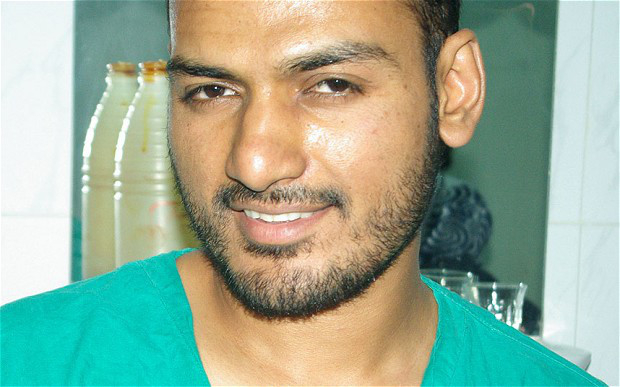
Dubai: In an interview with the BBC, two men, who were in prison with a British doctor in Syria, have spoken for the first time about his death and have cast doubt on the official Syrian explanation.
Syrian government officials claim that Dr Abbas Khan, who was detained while volunteering in Aleppo to treat victims of the civil war, took his own life. Dr Abbas Khan was a father and surgeon who volunteered to work in Syria but he was arrested by government forces and one year later ended up dead. “Syria has maintained he’s committed suicide. We don’t believe that. We want to know what has happened. Our argument is that my brother did not kill himself. He was murdered,” his brother Afroze Khan told the BBC.
The BBC has heard new evidence that may support the family’s case. It has spoken to two men who knew Dr. Khan in jail. They don’t want to show their faces but it has verified their identities. “He used to tell us how they used to beat him and hang him up by the hands. They beat him with a stick. The beating was concentrated on his legs. I remember he had lots of dark brusises. May God rest his soul,” one former inmate now living in Istanbul told the BBC.
The men spoke anonymously to protect their families still inside Syria. They both describe how Dr. Khan gave treatment to other inmates and taught them English. They both describe a man who was positive and strong. They said Dr. Khan had no reason at all to kill himself. “Its impossible for Abbas to do that,” said his former cellmate. “Why would he think to kill himself?” he added.
The men were all held in Damascus. Dr. Khan’s family were told he would be released. But the BBC was told he was taken away by the intelligence services instead and five days later he was dead. “He took off his pajamas. Hooked it on the window or a hole and he committed suicide,” Faisal Meqdad, Syria’s Deputy Foreign Minister told the BBC. But the former prisoners believe that Dr. Khan was killed, because he kept a diary of how he was treated and what he saw.
“He saw people dying in front of him. He saw the emaciated skeletons. Abbas saw the brutality. Abbas saw everything. They killed him for the things he saw,” the cellmate said. The court still has to hear the evidence and the family wants the men to testify.












